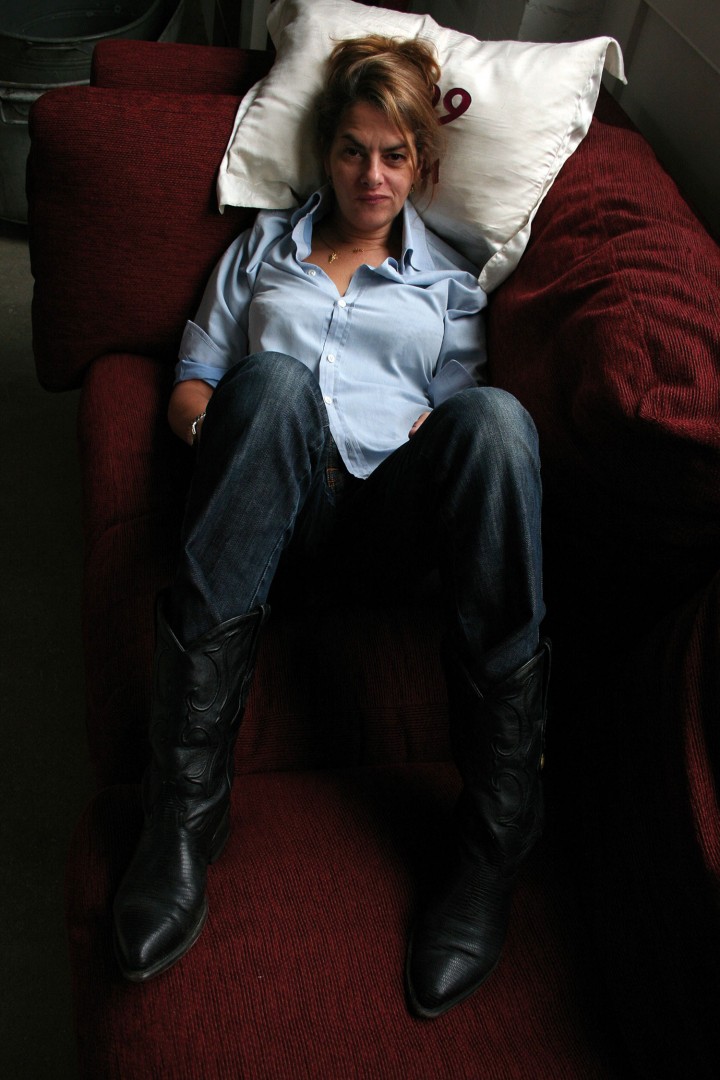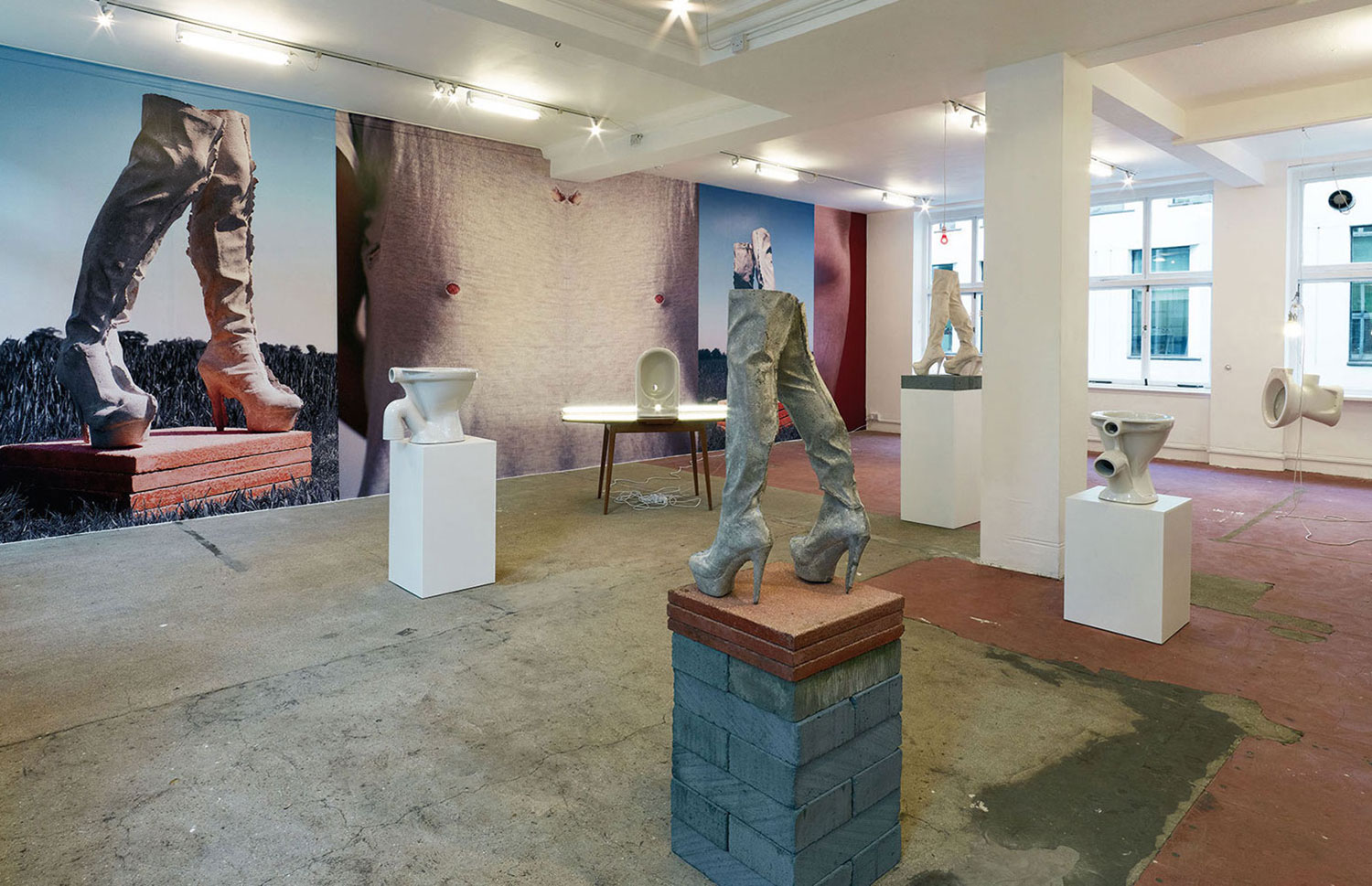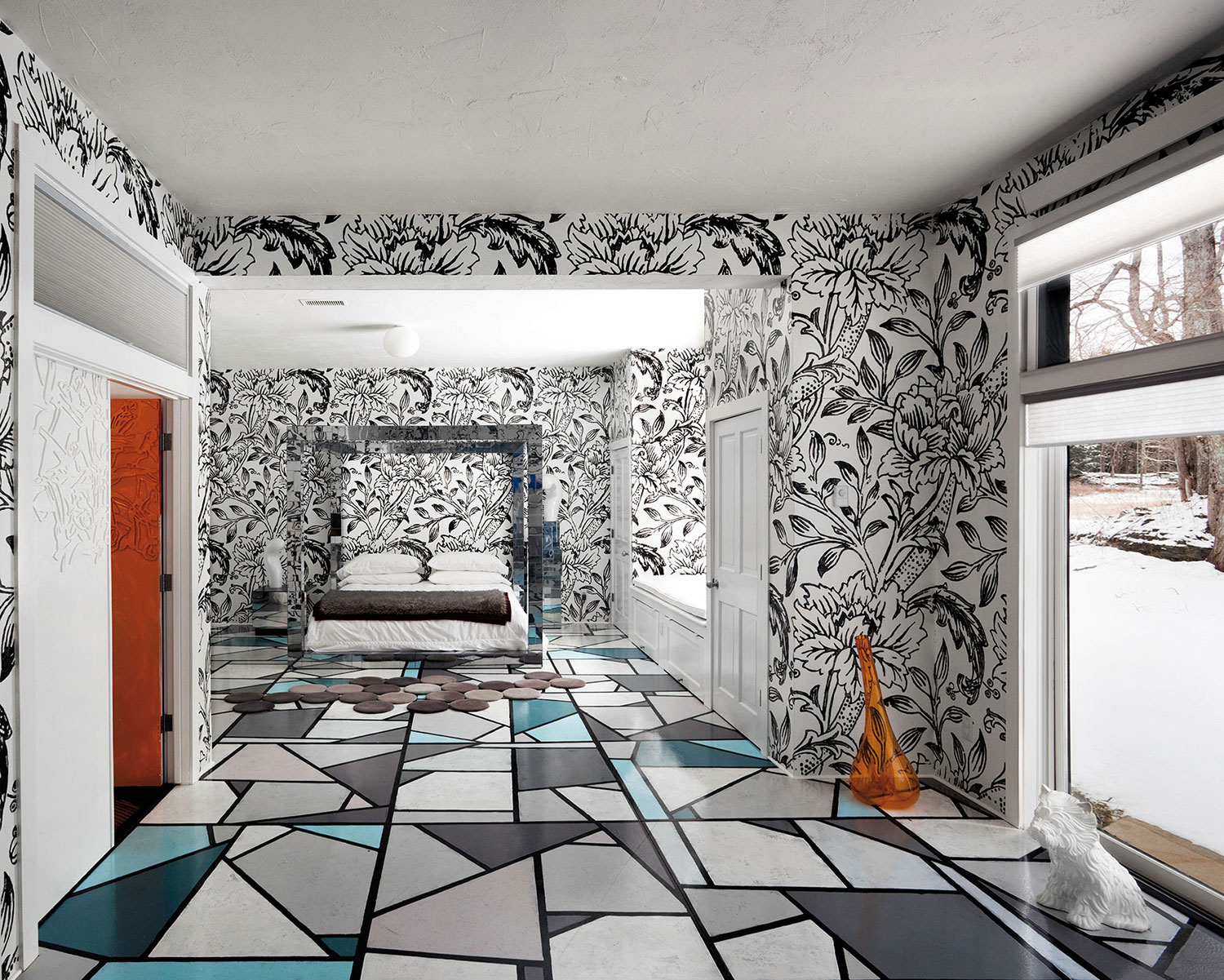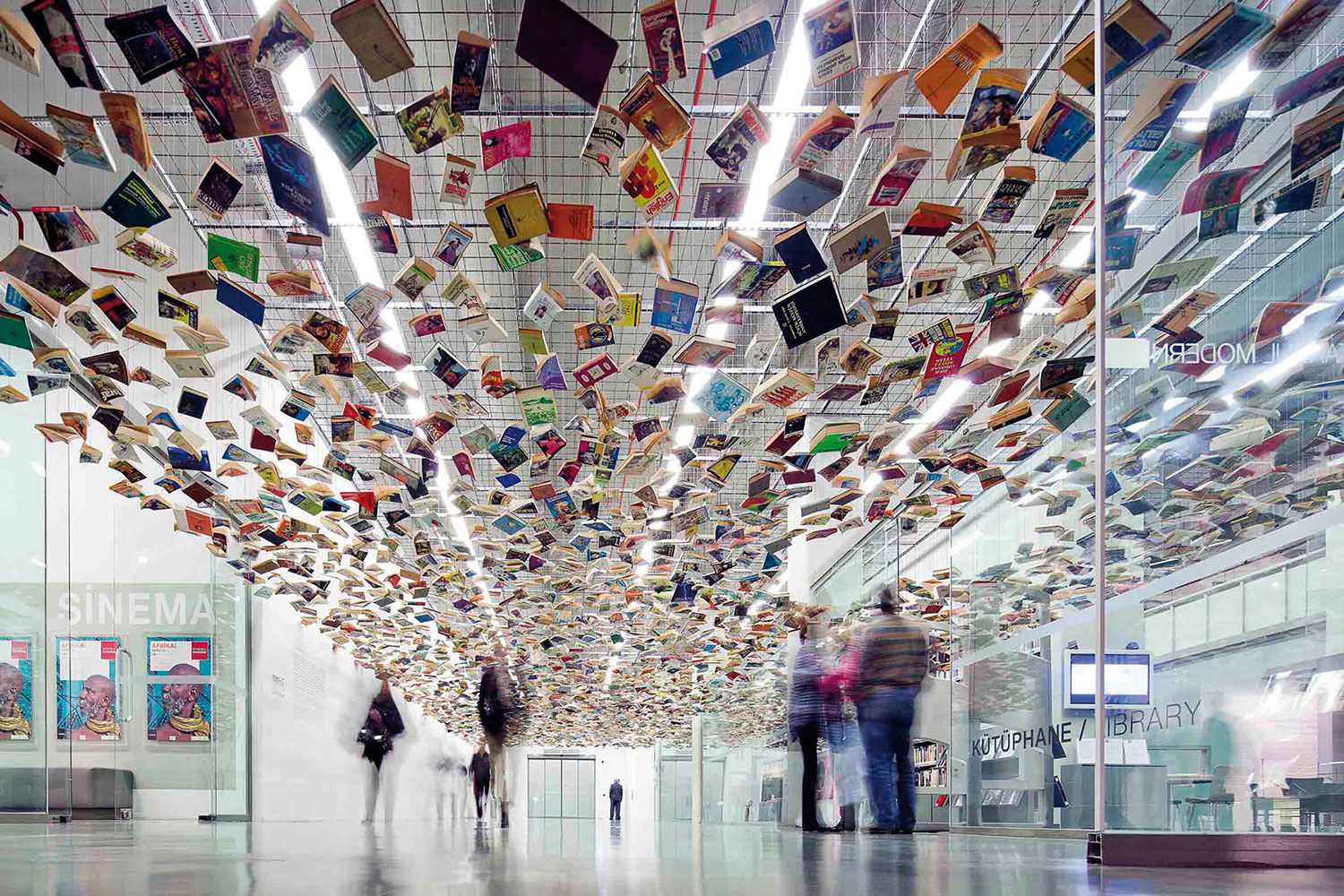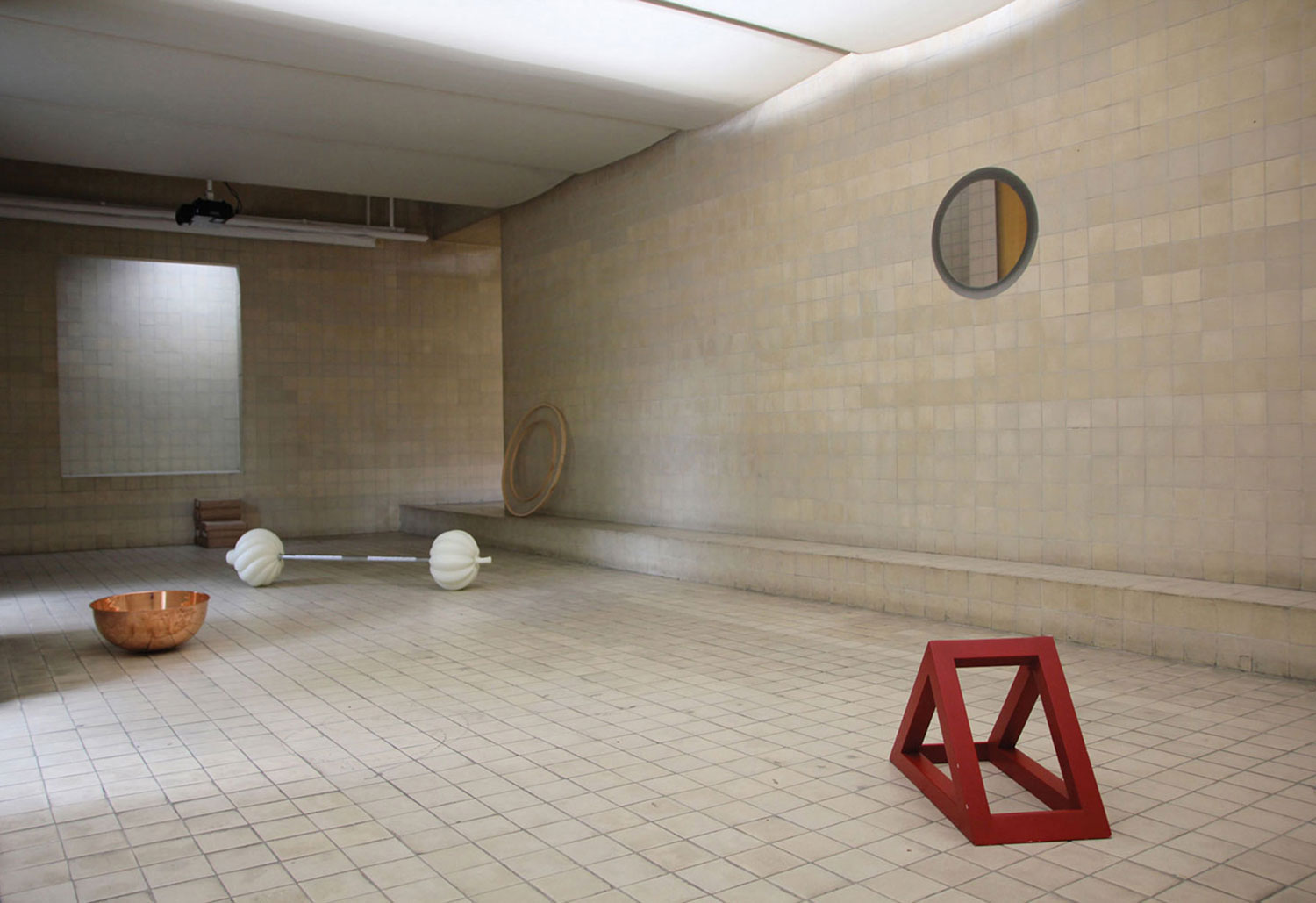
Umberta Genta: When I saw your show “She Lay Down Deep Beneath the Sea” at Turner Contemporary, I instinctively felt a sort of peace, a sense of “distance.” Compared to your retrospective at the Hayward Gallery, this is, or wants to be, a new step. I liked the fact that the location is the town where you were brought up. But I admit a part of me thought: “I miss the ‘old Tracey’ a little bit.” I’m a slow metabolizer, and perhaps nostalgic of your trademark wildness. Have you definitely made a transition?
Tracey Emin: Yeah, absolutely. Definitely. Also the work was all new work because I knew I had to give Margate something different. And if you mean by the “old Tracey” the blankets and neons and very hardcore subject matter, that’s still there — just not for that show in Margate.
UG: The works at Turner Contemporary are strikingly delicate and light in tone. There is a bed, which is no longer unmade, nor alluding to who slept in it. Is your formal approach shifting towards something more minimal?
TE: No. For that show I just wanted the work to look very classical; but the mattress has so many stains on it, and they are all mine. That work is about the loss of fecundity and the realization that youth will never return.
UG: By the way, have you ever seen again any of those Margate guys you name in Why I Never Became a Dancer? (a 1995 work in which the artist describes an episode from her adolescence, in particular a dance contest, when some guys insulted her, e.n.). If so, how did you feel?
TE: Yes. I have seen them. One is a very successful dancer in Las Vegas. And he was apologetic to me, as he has daughters of his own now. It’s not right to have sex with a 14-year-old girl when you’re in your 20s.

I Didn’t Say (2011). Courtesy the Artist and White Cube, London. Photography by Ben Westoby.
UG: I’ve always perceived your work as disarmingly innocent, even in its more brutal manifestations. You tell the story of a woman, and in the narration process you display all those things that are feminine. Do you have a favorite soap opera?
TE: When I was young I used to be addicted to Brookside. It had a humor but it also had a brutal reality to it. It was based on the outskirts of Liverpool. I followed it for years. But now if I want to relax I tend to watch CSI back to back, Criminal Minds, any series about homicide.
UG: What would you say is the most important thing you took with you from the late ’90s, when you became a part of the YBA? And how does this influence who you are today?
TE: The late ’90s was a wild time that involved lots of international group shows and meeting lots of international artists who were all in my peer group. I think that in itself was an amazing experience. Carsten Höller, Pipilotti Rist, Franz Ackermann, Elke Krystufek — brilliant to see how we have all grown up and how some of us haven’t!
UG: You are often asked the most private questions by the media. Do you think that being a celebrity influences being an artist?
TE: I think in the serious art world it was a problem for me because in Britain I am known by the mass media, which means there is no room for the museums and the more serious institutions — I’m already taken.
UG: I remember you saying in an interview that your sexual energy has decreased. Have you ever feared that your art might be too dependent on the sexual aspects of your life? Have you ever thought: “Now what?”

TE: Well, you yourself just said you missed the “old Tracey.” I’m nearly 50, I’m on the other side of my life now. And I’m much more interested in love. And that doesn’t come by fucking someone’s brains out.
UG: Despite your statement about never wanting to have a child, your work in general strikes me as extremely maternal, in the way it describes motherhood in its most tender and dramatic sides. Had you been a mother, would you have kept being an artist?
TE: Definitely not. Because I don’t like compromise. And I think when I had my first abortion that was subconsciously in my mind, and when I had my second abortion it was definitely in my mind.
UG: There is a part of criticism that says that you and your work have become more “bourgeois” in approach. How would you respond to this in three words?
TE: Don’t be silly.
UG: In your career as an artist, what is the question you would have loved to have been asked, but were never asked?
TE: I love you. Will you marry me?
UG: What do you consider your greatest success?
TE: To keep going. And building my own studio. And being completely 100 percent independent as a woman.

